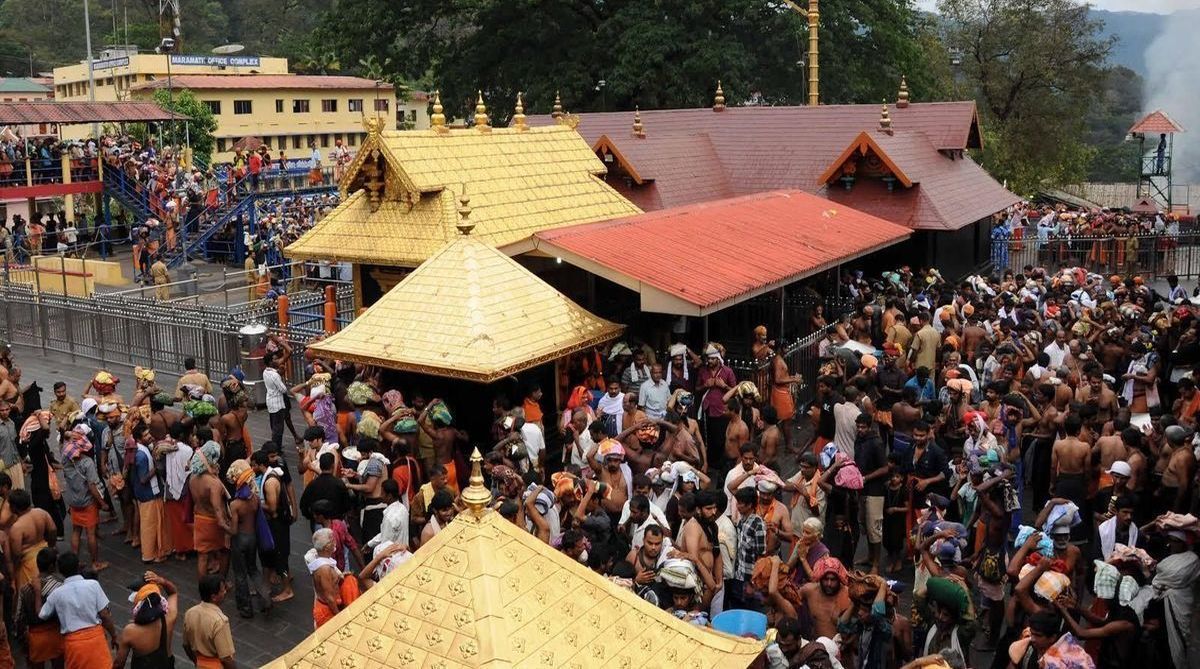Battle in Kerala
With all 20 Lok Sabha seats in Kerala at stake in the second phase of polling tomorrow, the electoral drama unfolds with its usual intensity, underscoring the unique political landscape of the state.
National Association of Aayappa Devotees, Nair Service Society, and 17 other organisation have moved the review petition seeking the recall of September 28 verdict.

Devotees at Sabarimala temple (File Photo: IANS)
The Supreme Court will consider on Tuesday a batch of petitions seeking the recall of the constitution bench verdict allowing women in the age group of 10 to 50 years at Lord Ayappaa’s Sabarimala temple.
The bench of Chief Justice Ranjan Gogoi, Justice Rohinton Fali Nariman, Justice A.M. Khanwilkar, Justice D.Y. Chandrachud and Justice Indu Malhotra would consider the review petitions in their chambers at 3 p.m.
Besides this, four more petitions relating to Sabarimala temple are listed for hearing by a bench of three judges on Tuesday.
Advertisement
National Association of Aayappa Devotees, Nair Service Society, and 17 other organisation have moved the review petition seeking recall of September 28 verdict.
The five-judge Constitution Bench headed by then Chief Justice Misra had junked the age-old tradition of the Lord Ayyappa temple by a majority verdict of 4:1.
According to PTI, a batch of 48 petitions seeking review of the judgment would be taken up for consideration in-chamber by the Supreme Court bench.
Read | Over 500 women of menstrual age book e-tickets for Ayyappa darshan at Sabarimala
The shrine, nestled in the sprawling Periyar Tiger Reserve in the Western Ghats, was witness to frenzied devotees protesting against the entry of young women in the menstrual age when it was opened in October and early this month for monthly pujas.
The review plea by the Nair Service Society, one of the petitioners, said “without holding that the questions raised related to matters of religion which are not within judicially manageable standards, the majority decision in substance has the effect of holding that the character of the deity can be altered based on individual faith and belief, in violation of the tenets of a particular religion and or religious sect”.
The petitioners have also argued that besides “patent legal errors” in the verdict, the assumption that the temple practice is based on notions of menstrual impurity is “factually erroneous”.
Pointing to massive protests against the verdict by women worshippers, the petitioners have contended that “the subsequent events that transpired after the judgment clearly demonstrate that overwhelmingly large section of women worshippers are supporting the custom of prohibiting entry of women.
(With agency inputs)
Advertisement